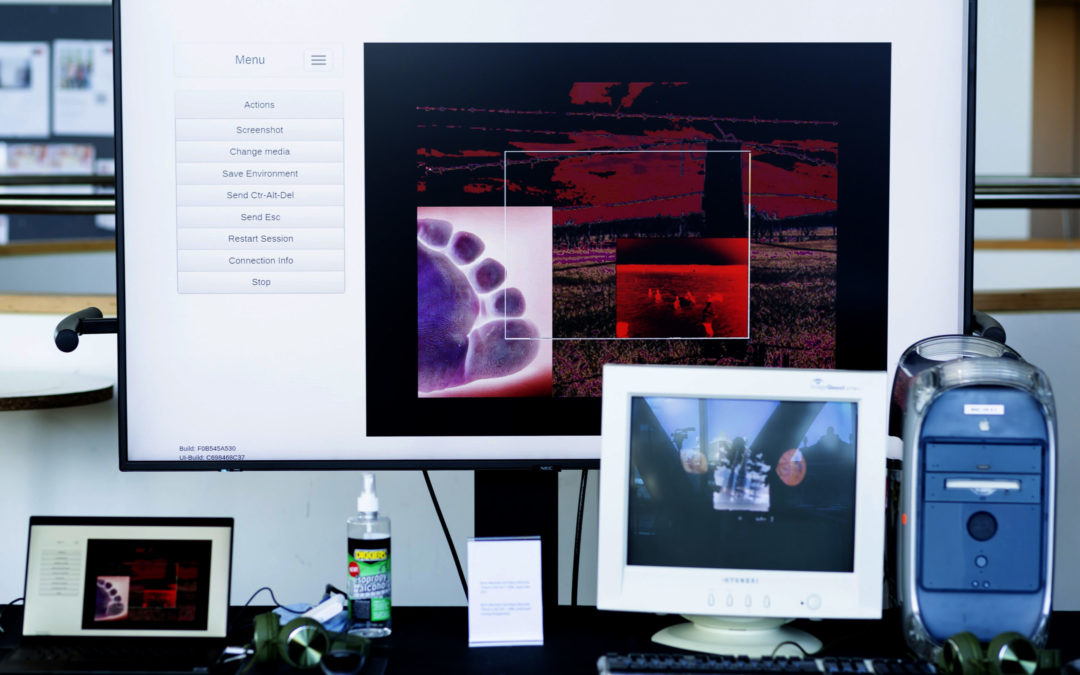WELCOME
Our Digital Heritage is the web presence of a group of Australian researchers concerned with the heritage of the born-digital. Digital heritage research is multi-disciplinary, encompassing historical, technical, archival and legal concerns. We conduct research on a range of uses of computing, including games, media arts, the demoscene, and computer users, in Australia and beyond.
Our Digital Heritage involves people who are passionate about meeting the challenges posed by born-digital archives and collections that are at risk of degradation and loss. Since 2013, by a core group of researchers and Researchers, practitioners and industry leaders have undertaken research, curated exhibitions, enhanced skills in digital preservation, shared know-how, and implemented strategies to preserve and provide access to born-digital games and artworks.
Our Digital Heritage is evolving through a series of ARC funded projects involving partnerships between universities research institutions such as Swinburne University, RMIT University, The University of Melbourne, The University of Western Australia, UNSW, The University of Western Sydney and GLAM (Galleries, Libraries, Archives, Museums) organisations such as ACMI, AGNSW, State Library of South Australia, Griffith University Art Museum, Australian Institute of Aboriginal and Torres Strait Islander Studies and others – a grand consortia that continues to expand with the LIEF project, The Australian Emulation Network, AusEaaSI.
The Digital Heritage Lab at Swinburne University is a central hub for investigating methodologies for the preservation of born-digital artefacts using emulation; and houses a collection of working vintage computer hardware, software, games, and media art from 1980s through to early 2000s.
The Our Digital Heritage website has information on current projects and archived research outcomes. The Blog Archive offers a history into past research activities.
Our Digital Heritage also hosts archived websites from previous research involving key game developers: Beam International Software, Melbourne House, Ratbag Games as well as OzScene, a historical archive of the Australian Amiga demo scene, which features demos, intros, slideshows, music disks, cracktros, trainers and pack disk menus that were produced during the Amiga era of the late 80’s to mid 90’s.
Our Digital Heritage is administered from Swinburne University of Technology, Melbourne, Australia.
You can contact us at: aama [at] swin.edu.au
News from our Projects

Building a Grand Consortia…
In the keynote that opened Born Digital Cultural Heritage Now 2023 on November 29th, 2023, Melanie Swalwell, Professor of Digital Media Heritage at Swinburne University, emphasised that...

SIDE-BY-SIDE: Showcasing Emulation of Media Artworks
Swinburne University: February 10, 2023. Inspired by the Guggenheim Museum’s curatorial concept of ‘seeing-double’, SIDE-BY-SIDE offered the opportunity for visitors to play video games and interact...
Archived Posts
Updated CFP: Hacking and Making the Digital Era
Melanie Swalwell, Maria B. Garda, David Murphy We are running panels on this theme at a number of conferences, with the intention of compiling an anthology. We invite submissions for just a...
CFP for #SCMS18: Hacking and Making the Digital Era
Melanie Swalwell, Maria B. Garda, David Murphy We seek proposals for papers on user hacking and making with a range of analog and digital media/technologies in a variety of temporal and regional...
Fans and Videogames published!
The anthology Fans and Videogames: Histories, Fandom, Archives, edited by Melanie Swalwell, Helen Stuckey, and Angela Ndalianis, has now been published by Routledge. Thanks to all our wonderful...
8″ Disk Recovery: The continuing story
The last chapters in the 8″ disk recovery project have been posted on Open Preservation Foundation’s website. 8″ Disk Recovery: Kryoflux and Catweasel Hovering just above the Magnetic Flux Counting...
